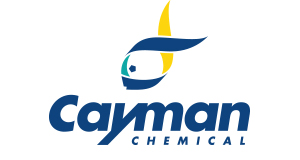ApoE4 (human, recombinant)
ApoE4 (human, recombinant)
SKU
CAY37227
Packaging Unit
100 µg
Manufacturer
Cayman Chemical
Availability:
loading...
Price is loading...
Formulation: 50 mM HEPES, pH 7.4, with 150 mM sodium chloride and 10% glycerol
Purity: ≥70% estimated by SDS-PAGE
Shelf life (days): 180
Notes: ApoE is a member of the superfamily of amphiphilic exchangeable apolipoproteins and a lipid carrier protein with a major role in lipid homeostasis.{64862,64861} It is expressed in astrocytes, hepatocytes, monocytes, macrophages, and kidney cells and exists as three major polymorphic alleles, ApoE2, ApoE3, and ApoE4, which occur in the United States population with frequencies of approximately 7, 79, and 14%, respectively. ApoE is composed of an N-terminal domain, which contains sequences for binding to members of the LDL receptor family, and a C-terminal domain, containing the major lipid-binding region, linked by an unstructured hinge region, which facilitates domain mobility essential to protein function.{64861} Upon lipid binding, ApoE undergoes a conformational change that orients the α-helices of the C-terminal domain perpendicular to the acyl chains of the bound lipids to stabilize the bound lipids and facilitates recognition and binding to LDL receptors by the N-terminal domain. ApoE isoforms vary at amino acids 130 and 176 (112 and 158, respectively, in the mature protein) with ApoE2 containing cysteine at 130 and 176, ApoE3 containing cysteine at 130 and arginine at 176, and ApoE4 containing arginine at 130 and 176. The lack of cysteine residues in ApoE4 inhibits dimerization and multimerization observed with ApoE3 and ApoE2, respectively. ApoE4 is associated with smaller lipoproteins that promote less cholesterol efflux than ApoE3-containing lipoproteins, and APOE4-expressing astrocytes accumulate smaller lipid droplets than those expressing APOE3.{64865,65604} It is associated with increased amyloid-β production and accumulation, as well as impaired episodic memory and global cognition in adults over the age of 60.{64862,68305} APOE4 expression is positively correlated with earlier disease onset, faster disease progression, and increased brain atrophy in patients with Alzheimer’s disease.{68305} Cayman’s ApoE4 (human, recombinant) protein can be used for cell-based assays.
Purity: ≥70% estimated by SDS-PAGE
Shelf life (days): 180
Notes: ApoE is a member of the superfamily of amphiphilic exchangeable apolipoproteins and a lipid carrier protein with a major role in lipid homeostasis.{64862,64861} It is expressed in astrocytes, hepatocytes, monocytes, macrophages, and kidney cells and exists as three major polymorphic alleles, ApoE2, ApoE3, and ApoE4, which occur in the United States population with frequencies of approximately 7, 79, and 14%, respectively. ApoE is composed of an N-terminal domain, which contains sequences for binding to members of the LDL receptor family, and a C-terminal domain, containing the major lipid-binding region, linked by an unstructured hinge region, which facilitates domain mobility essential to protein function.{64861} Upon lipid binding, ApoE undergoes a conformational change that orients the α-helices of the C-terminal domain perpendicular to the acyl chains of the bound lipids to stabilize the bound lipids and facilitates recognition and binding to LDL receptors by the N-terminal domain. ApoE isoforms vary at amino acids 130 and 176 (112 and 158, respectively, in the mature protein) with ApoE2 containing cysteine at 130 and 176, ApoE3 containing cysteine at 130 and arginine at 176, and ApoE4 containing arginine at 130 and 176. The lack of cysteine residues in ApoE4 inhibits dimerization and multimerization observed with ApoE3 and ApoE2, respectively. ApoE4 is associated with smaller lipoproteins that promote less cholesterol efflux than ApoE3-containing lipoproteins, and APOE4-expressing astrocytes accumulate smaller lipid droplets than those expressing APOE3.{64865,65604} It is associated with increased amyloid-β production and accumulation, as well as impaired episodic memory and global cognition in adults over the age of 60.{64862,68305} APOE4 expression is positively correlated with earlier disease onset, faster disease progression, and increased brain atrophy in patients with Alzheimer’s disease.{68305} Cayman’s ApoE4 (human, recombinant) protein can be used for cell-based assays.

 Deutsch
Deutsch










